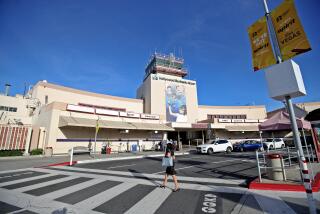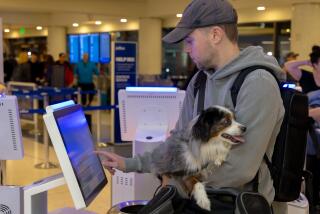What I did wrong in 2017, and my 6 resolutions for being a better traveler in 2018
I have to get better at this travel thing, I told myself for about the millionth time on my last trip of the year, and now I am making the resolutions — a compact with myself, as it were — to be a smarter traveler.
In 2017, I tallied a record amount of travel, some of it personal, some of it L.A. Times-related, but most of it in service to the professional organization of which I was president. Much of it was tainted by shortsightedness, by the “I should have thought of that” moments that unfold in slow-mo in your mind’s eye, usually while the mini-debacle is happening.
Here is some of what I learned and what I will do in the future:
1. Pay attention to airline connect times
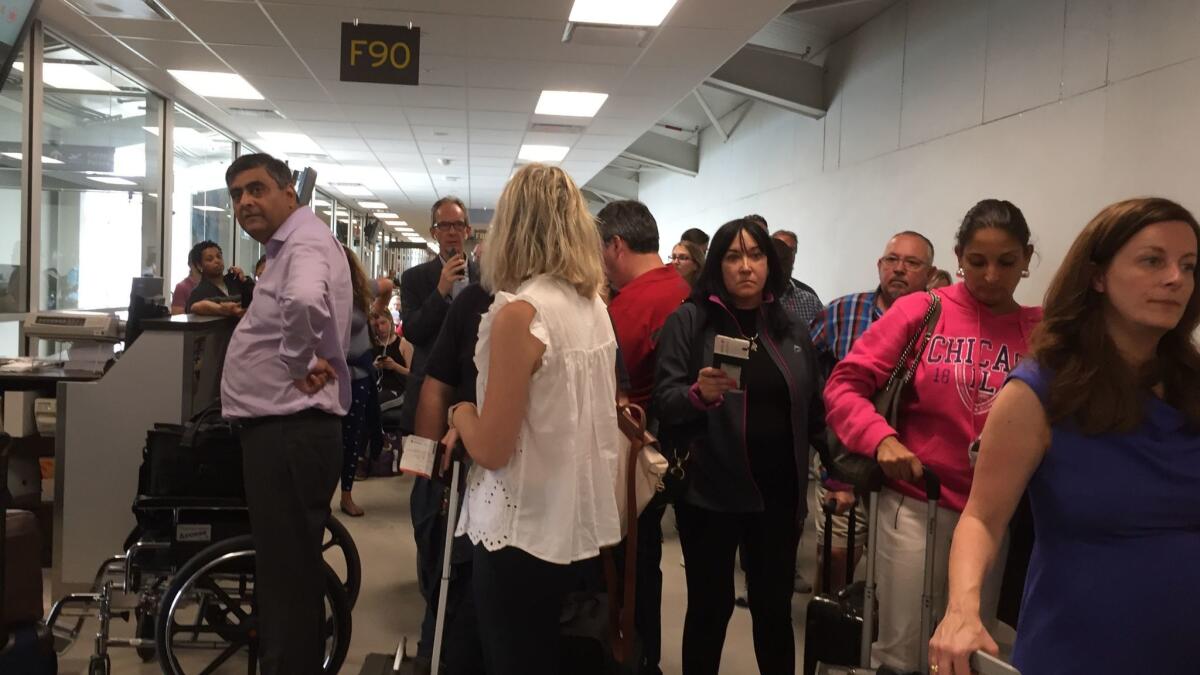
The broad rule for “minimum connect time,” or MCT, is one to three hours for international, one-half hour to two hours on domestic, according to AirTreks, which notes that it specializes in “multistep international travel, especially complex routes with up to 25 stops.”
I didn’t think twice about a 1-hour, 45-minute layover between my flight from Charlottetown, Prince Edward Island, Canada, through Toronto’s Lester Pearson International Airport on an itinerary that would eventually take me to Gillette, Wyo.
Even Air Canada, my carrier from Charlottetown, says that’s reasonable for Toronto, which also was under construction (as all airports seem to be).
I might have been all right if my 5:45 a.m. flight from the island had been on time. It wasn’t and I wasn’t.
I might have been all right if I hadn’t had to go through U.S. Customs in Toronto. I did and I wasn’t.
And I still might have been OK if Lester Pearson weren’t about the size of Rhode Island and under construction. It is and I wasn’t.
A slight exaggeration about the size, perhaps, but AirTrek’s figures above, it notes, are the “absolute least amount of time an able-bodied person needs to make a connection to a continuing flight.”
I’m not quite sure what “able-bodied” means, but I can tell you now it doesn’t mean a beyond-middle-age traveler with a bad back, a bad knee and a bad attitude.
I failed to factor in my own physical failings. I’ll calculate these in the future.
I spent a lot of time in the Toronto transit lounge trying to get the rest of my itinerary to work because the rental car counter in Gillette, Wyo., wouldn’t be open when I got there on my revised schedule and I still had about 100 miles to drive to Sheridan, Wyo., my real destination.
I had a speaking engagement at 8 the next morning, the whole reason I was making the trip. It was looking iffy.
2. Stay calm and find an ally
The agent for the airline that was supposed to take me to Gillette washed her hands of me and my problems, but Air Canada’s Marie Bouillere-Howard did not.
She routed me to Billings, Mont., even though her airline does not fly there. Huzzah! The rental car counter was open later in the evening. Huzzah again! And Billings was just 30 miles farther than my original drive. Triple huzzah!
I was 11 hours late getting to Sheridan, but I wouldn’t have gotten there at all without Bouillere-Howard, who stepped forward. She was an outstanding ally who volunteered to help.
I didn’t tell her what I do for a living, and she didn’t ask. She did it because she could help. For this, she deserves the biggest huzzah of all.
This was luck, but if that had failed, I would have asked until I found someone who would help. I would remind myself to stay calm, as hard as that can be.
When you ask for help, you may be playing personnel roulette, but place your bet on red and keep on trying.
3. Always use a travel agent for complex itineraries
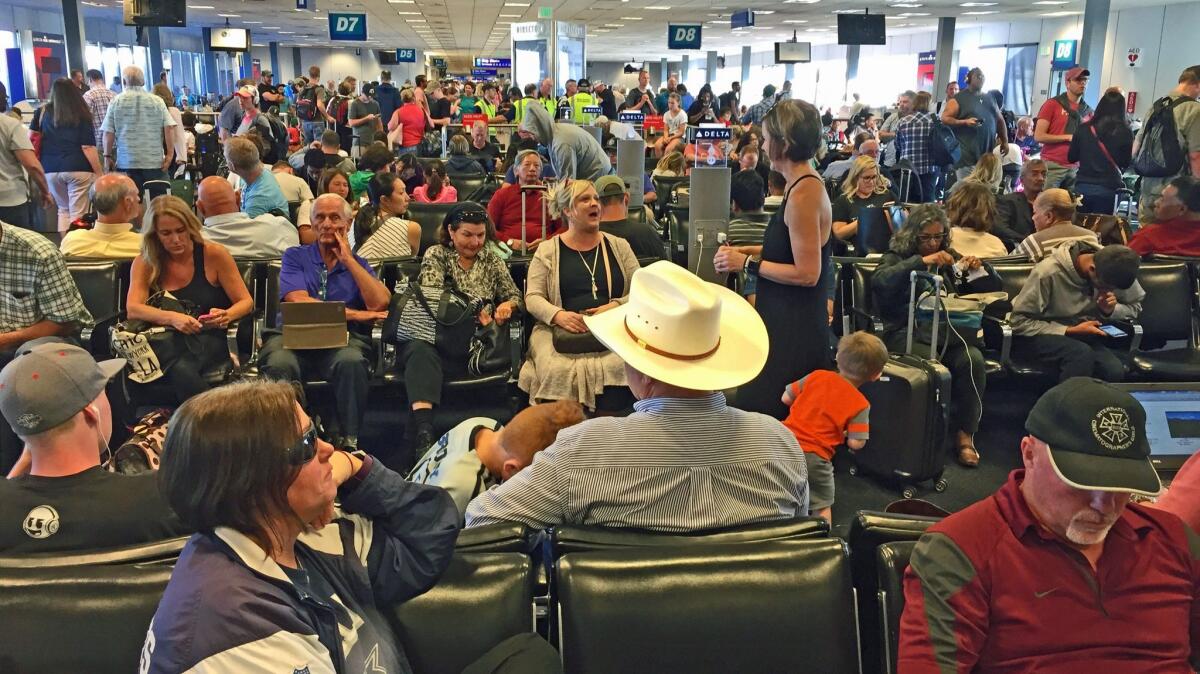
You don’t need an agent, generally speaking, for a round-trip to San Francisco. You do if you have an itinerary that’s a veritable house of cards, as that one was.
While Air Canada’s miracle worker was trying to get me to my destination, my travel agent was now having to redo the end of my itinerary because I was flying out of Billings, not Gillette, to get home.
My original route took me from Gillette to Denver, then Denver to Burbank. My final itinerary took me from Billings to Salt Lake City and Salt Lake City to LAX.
That different arrival airport was necessary to avoid paying about $500 more for the convenience of flying into Burbank.
My travel agent saved me time and she saved me money.
4. Stop cramming so much travel into too little time
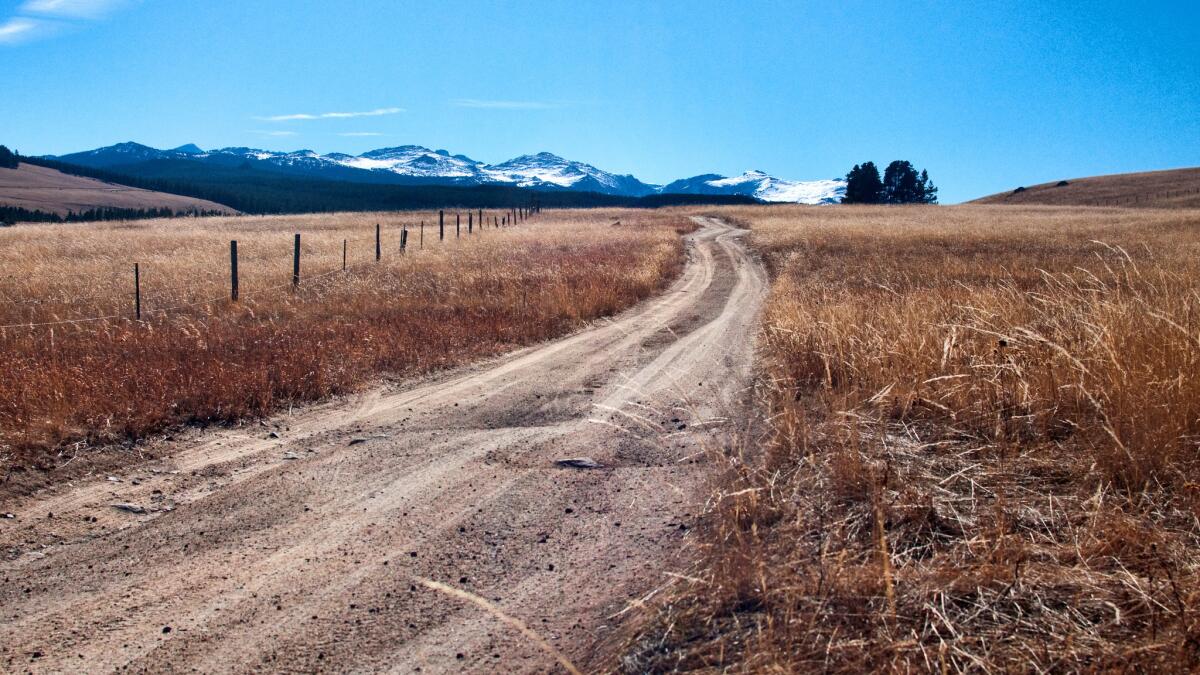
The world does not operate on the printed schedule. It operates on the schedule that occurs. These are often not the same thing, as I learned on the trip above.
I had another equally crazy trip in which the schedule worked out because there were no glitches, but the pace was counterproductive: LAX to Honolulu, Honolulu to Chicago, Chicago to Washington, D.C., Washington to LAX, seven airports, 10 days, bad idea.
You can’t will your body to accommodate time and climate changes. OK, maybe you can if you’re 19, but I’m not, it pains me to admit. What pains me even more: a knee that’s still barking at me three months later.
5. Be a better packer

How do you pack for a trip that takes you from what you think will be hot, then cold, then temperate? You can, but I didn’t. It was hotter in Chicago than it was in Honolulu and by the time I got to the Windy City, I had already mailed home my hot-weather clothes.
Unlayering — the opposite of layering in which you add more clothes — should have been key. But I couldn’t subtract what I didn’t have.
I keep thinking I’m going to find the magic suitcase that will let me take one wardrobe for each climate. My family refers to me with an unkind name that suggests I have a lustful relationship with luggage. It’s not the luggage. It’s my desire to take too much.
I blithely blame co-branded credit cards, which allow me to check my first bag for free (or Southwest, which does the same, card or no card).
Never used to check a bag. Now I can.
Candygram!
Extra shoes because: business meetings. Extra sweater because: fall in Chicago. Extra electronics because: boredom.
Extra, schmextra. No more. I may still check a bag so I don’t have to lift it into the overhead bin (although the grayer and shorter I get, the more willing another flier is to help me) or just because I got really tired of lugging the 25-incher up flights of stairs in European hotels on a road trip that showed significant slippage in my packing prowess.
But now I will write down a list of outfits for each day. (I have done that and it works.) I will stick to the schedule. I will ignore the siren call of the giant green clamshell suitcase and take its lithe cousin. I will revel in my freedom.
6. Check stuff before packing it

My new motto: Repair and replace—before leaving home.
Clothes get eaten, as did the cashmere sweater I wanted to wear the last day of a trip to the suddenly chilly Pacific Northwest. Alas, the sweater had two very noticeable moth holes.
Things get old, including the solid deodorant in my go-bag. All that heat-to-cold-to-heat didn’t do it any good, and it crumbled in my hands when I opened it on my last trip of the year.
Electronics deteriorate, including a portable keyboard. When I pulled it out the last day of the trip, the bottom row of keys no longer worked.
Nothing is forever and to think it so is to be smelly, stuck and surprised. The best surprise on the road is no surprise, at least when it comes to gear.
Happy 2018 to all and to all a good flight, drive, train trip or just brain vacation.
More to Read
Sign up for The Wild
We’ll help you find the best places to hike, bike and run, as well as the perfect silent spots for meditation and yoga.
You may occasionally receive promotional content from the Los Angeles Times.

